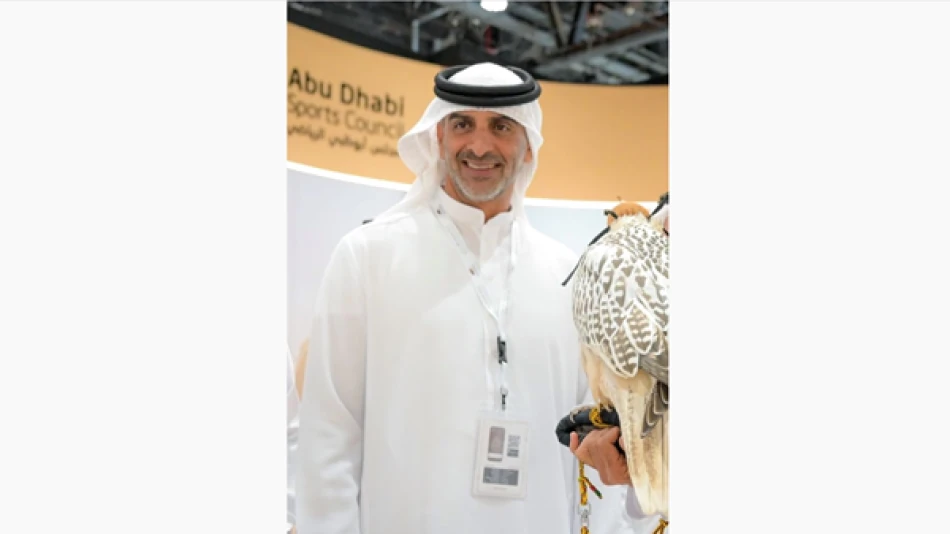
Abu Dhabi Falconers Club Captivates Young Enthusiasts at Hunting and Equestrian Expo
UAE's Ancient Falconry Tradition Gets Modern Revival Through Youth Education Initiative
The Abu Dhabi Falconers Club is spearheading a comprehensive youth engagement program at the Abu Dhabi International Hunting and Equestrian Exhibition, marking a strategic shift to preserve Emirati heritage through hands-on education. The initiative represents the UAE's broader effort to maintain cultural identity while preparing the next generation to carry forward traditions that have defined the region for centuries.
Bridging Generations Through Heritage Sports
The club's pavilion has drawn significant interest from young visitors eager to explore different falcon species and practice the ancient art of falconry. This surge in youth participation reflects a growing recognition that traditional practices require active cultivation to survive in an increasingly globalized world.
The hands-on experiences offered specifically target younger demographics, providing practical training that goes beyond mere observation. Students engage directly with the birds, learning the intricate skills that Emirati ancestors developed over generations in the harsh desert environment.
The "Abu Dhabi Falconer" Project: Institutionalizing Tradition
The club's flagship "Abu Dhabi Falconer" project represents the first systematic attempt to integrate falconry education into formal school curricula. The program trains and qualifies students while forming school-based teams that compete in organized falconry competitions.
This structured approach mirrors successful cultural preservation efforts seen in countries like Japan with traditional martial arts or Ireland with Gaelic sports, where formal education systems help maintain practices that might otherwise fade.
Competitive Framework Drives Engagement
By creating competitive opportunities, the initiative taps into young people's natural desire for achievement and recognition. School-based teams provide peer networks and institutional support that individual hobbyists often lack, increasing the likelihood of sustained participation.
Cultural Diplomacy Through Heritage Display
According to Sultan Ibrahim Al Mahmoud, Executive Director of the Abu Dhabi Falconers Club, the organization actively participates in heritage events and cultural festivals to showcase Emirati traditions to international visitors. This approach positions falconry as both a living tradition and a soft power tool for cultural diplomacy.
The strategy aligns with the UAE's broader nation-branding efforts, similar to how Scotland promotes Highland Games or Mongolia showcases traditional wrestling. These cultural exports help differentiate nations in an increasingly homogenized global landscape.
Economic and Social Impact Beyond Tradition
The falconry revival carries implications beyond cultural preservation. The UAE's hunting and equestrian exhibition attracts international visitors, contributing to the country's diversified tourism strategy. Traditional sports and cultural practices increasingly serve as unique selling points for destinations seeking to offer authentic experiences.
Moreover, the emphasis on youth engagement addresses a common challenge facing traditional societies: ensuring cultural continuity without forcing participation. By making falconry accessible and competitive, organizers create organic interest rather than mandated compliance.
Lessons for Heritage Preservation
The Abu Dhabi model demonstrates how traditional practices can adapt to contemporary educational frameworks without losing authenticity. The combination of practical training, competitive structure, and institutional support provides a template that other regions could adapt for their own heritage preservation efforts.
The initiative's success will likely influence similar programs across the Gulf region, where rapid modernization has created tension between traditional values and contemporary lifestyles. Early indicators suggest strong youth engagement, but long-term impact will depend on sustained institutional commitment and continued adaptation to changing social dynamics.
Most Viewed News

 Layla Al Mansoori
Layla Al Mansoori






